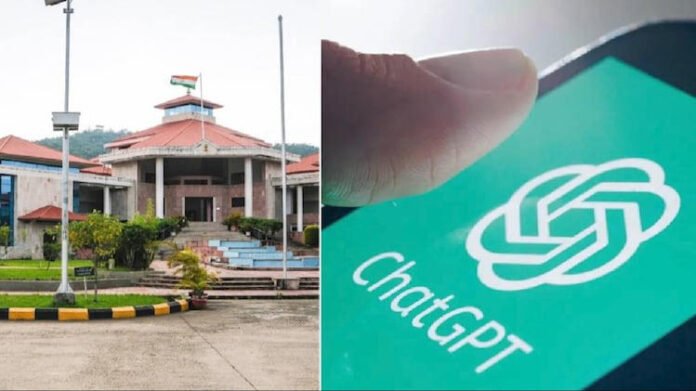The Manipur High Court has overturned the dismissal of several Village Defence Force (VDF) personnel, citing the use of ChatGPT, an artificial intelligence language model, as a crucial component in reaching its verdict. This case marks a pioneering moment in the integration of AI into judicial processes, highlighting both the potential and the challenges of such technology in the legal field.
The case involved the abrupt dismissal of numerous VDF personnel in Manipur, which had stirred significant controversy and discontent within the community. The VDF, established to aid local law enforcement in maintaining order and combating insurgency, plays a vital role in the security framework of the region. The dismissed personnel claimed that their termination was unjust and lacked due process.
As the appeals reached the Manipur High Court, the complexity and volume of the cases prompted the judiciary to seek innovative solutions to manage the workload efficiently. This led to the unprecedented decision to utilize ChatGPT to assist in legal analysis and decision-making.
ChatGPT, developed by OpenAI, is designed to understand and generate human-like text based on the input it receives. In this case, it was used to analyze legal documents, summarize key points, and provide comparative analyses of similar legal precedents. The AI’s ability to process vast amounts of information rapidly made it an invaluable tool for the overburdened court.
The High Court fed ChatGPT a comprehensive dataset that included relevant laws, previous court rulings, and the specifics of the VDF dismissals. The AI then generated summaries and insights that helped the judges understand the nuances of each individual case more thoroughly.
The High Court’s ruling underscored several key findings. ChatGPT’s analysis highlighted discrepancies and procedural lapses in the dismissal process. The AI identified inconsistencies in the documentation provided by the authorities, suggesting that the dismissals did not adhere to the established protocols of natural justice. By comparing similar cases, ChatGPT found that the dismissals were disproportionate to the alleged infractions when compared to past judgments in analogous situations. This comparative insight was crucial in determining the fairness of the dismissals. The AI-assisted review revealed specific statutory violations, including the failure to provide proper notice and the right to a hearing, which are fundamental principles of administrative law. These findings, corroborated by the judges’ own analyses, led to the conclusion that the dismissals were unjust and should be overturned.
The integration of ChatGPT into the judicial decision-making process in Manipur has significant implications for the future of legal practice. This case demonstrates how AI can assist in managing large caseloads and complex legal issues by providing thorough and unbiased analysis. However, it also raises important questions about the role of AI in the judiciary.
On the positive side, AI can process and analyze vast amounts of data much faster than humans, potentially speeding up legal proceedings. By relying on data and established legal principles, AI can help ensure consistency in rulings. AI tools can also make legal processes more accessible to people by helping to break down complex legal language and concepts. However, AI is only as good as the data it is trained on. Inaccurate or biased data can lead to flawed outcomes. Legal decisions often require a nuanced understanding of human context and empathy, which AI lacks. The use of AI in the judiciary raises ethical issues regarding transparency, accountability, and the potential for misuse.
The Manipur High Court’s decision to overturn the dismissal of VDF personnel, with the aid of ChatGPT, is a historic moment in legal history. It showcases the potential for AI to enhance judicial processes while also highlighting the need for careful consideration of its limitations. As technology continues to evolve, the legal system must adapt, ensuring that AI serves as a tool to aid human judgment rather than replace it. This case sets a precedent for the responsible and innovative use of AI in the pursuit of justice.

